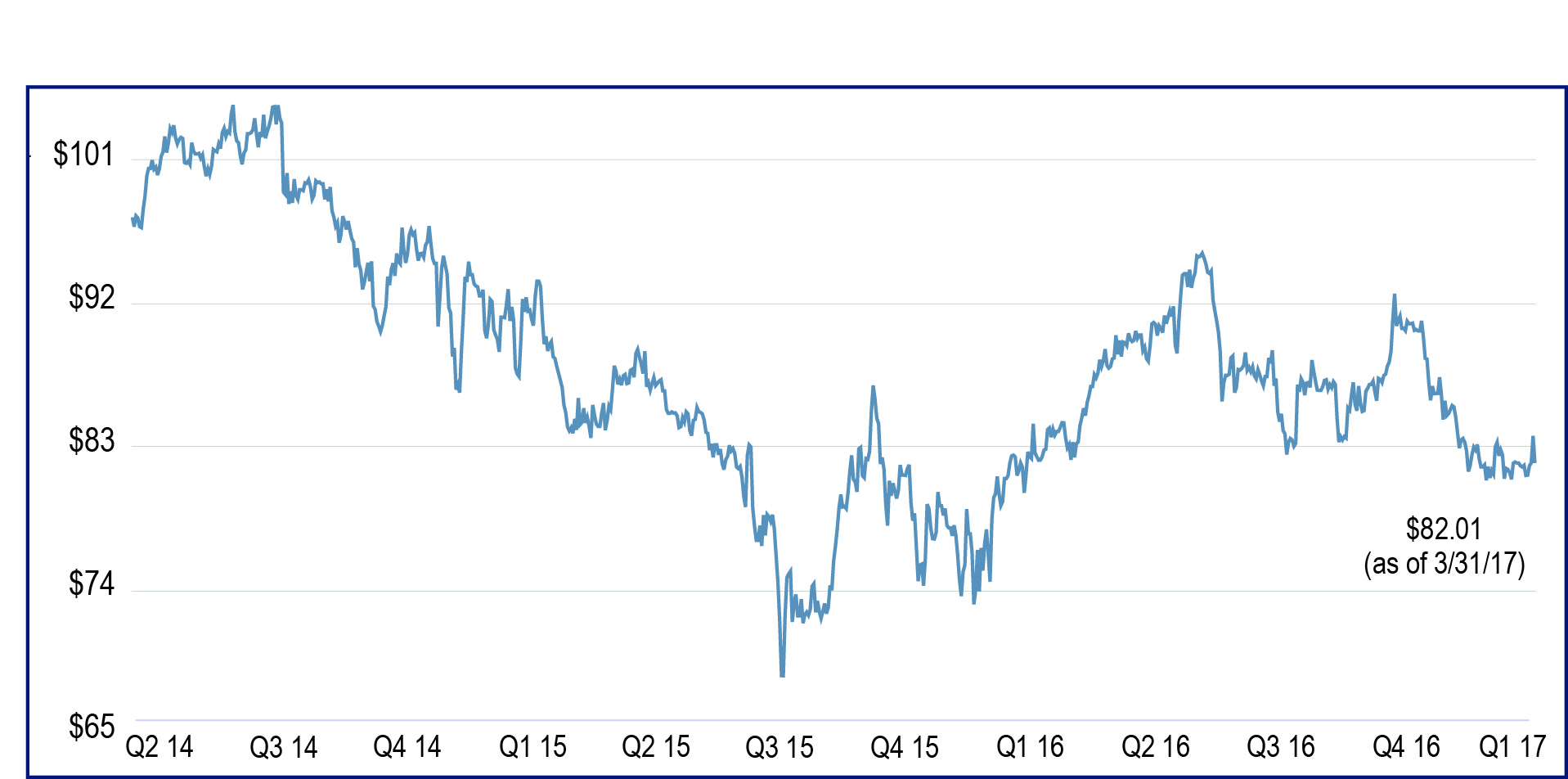Company Spotlight: ExxonMobil (Ticker: XOM)
by Ted Hart
Started by John D. Rockefeller as Standard Oil in 1870, ExxonMobil (Ticker: XOM) is the world’s largest diversified petrochemical company with a market capitalization of $343 billion. The company is split into three businesses: Upstream, Downstream, and Chemical. The Upstream segment engages in the exploration and production of crude oil and natural gas. Downstream refines the oil into liquids such as gasoline and markets the finished product at your nearby gas station. Finally, the Chemical business manufactures chemicals like ethylene, which is a basic petrochemical product that is the building block for many everyday products including packaging materials, storage containers, bottles, and toys.
Over the past decade, the company has had trouble growing production as new exploration has failed to move the production needle. Because the company wrote down higher cost reserves and lower oil prices continue to weigh on earnings, the stock is currently off 20% from its all-time high. However, earlier this year ExxonMobil made a significant shale acquisition in Texas’ Permian Basin that could contribute up to 350,000 barrels per day of production. The company paid about $27,000 per acre and $1.60 for each potential future barrel of oil – remarkably cheap compared to other transactions. The acquisition could increase the company’s production by up to 8% over the next few years.
On top of the new stellar production profile, the company is due to increase its dividend. If ExxonMobil increases the payout by 5% (slightly more than the mere 3% last year), the stock could yield 3.8%, while the S&P 500 is yielding 2%. Additionally, for those investors worried about an overvalued stock market or uncertain fiscal policy, ExxonMobil has outperformed in four of the past five bear markets by an average of 16%.
Oil prices cannot remain at these levels over the long term. Many exploration and production companies are currently not profitable. Almost as importantly, most oil service companies that help the producers get their wells up and running are financially stressed. As the
Federal Reserve continues its path to raise interest rates, these companies will have difficulty renewing their revolving credit lines. Restructurings and bankruptcies will likely occur, leading oil supply to decline.
With oil demand growing about 0.7% per year, oil supply coming offline should result in higher prices. With a pristine balance sheet, ExxonMobil should be there to benefit.
ExxonMobil (Ticker: XOM)




